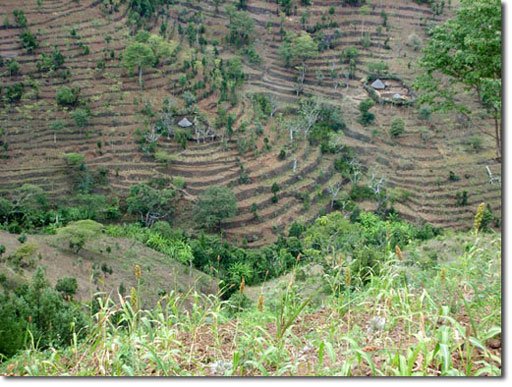1.5 Agriculture and environment
Agriculture is very important in Ethiopia to provide essential food crops and as a source of income, contributing about 46% of our country’s Gross Domestic Product (GDP). About 80% of the labour force in Ethiopia is in the agricultural sector, so it is vital to the livelihoods of the majority of people. However, agriculture also has significant negative impacts on our environment, including loss of biodiversity, pollution, climate change, soil erosion and the use of large amounts of water for irrigation.
What problems do you think are caused by using large amounts of water for agriculture?
This reduces the amount of water available for other human purposes such as drinking and washing, and for sustaining wildlife and maintaining the levels of rivers and lakes.
Agricultural activities are also major sources of water pollution. Pesticides and fertilisers applied to crops may wash into rivers and leach into soil and groundwater. (These effects are discussed in Study Session 8.)
Poor farming practices, especially on steeply sloping land, are a significant cause of soil erosion in Ethiopia because rainfall washes away the soil particles downhill. Each year more than 1.5 billion tons of soil are lost from the Ethiopian highlands (Tamene and Vlek, 2008). This lost soil is not only a problem for agriculture, it silts up rivers and lakes. Soil erosion and loss of soil biodiversity causes a decline in soil fertility and this in turn reduces agricultural productivity. Good agricultural practices, such as the use of terraces and diversion ditches, can help stop soil being lost from hillsides (Figure 1.11).

Agriculture also plays a role in causing climate change through the release of greenhouse gases into the atmosphere. For example, fertilisers added to the soil release nitrous oxide and livestock production releases methane from the digestion process in cattle and the decomposition of manure. The use of fossil fuels to power agricultural machines and burning trees to clear agricultural land both release carbon dioxide. In Study Session 9 you will learn more about climate change and the role of greenhouse gases in changing our climate.
1.4 Technology and the environment
